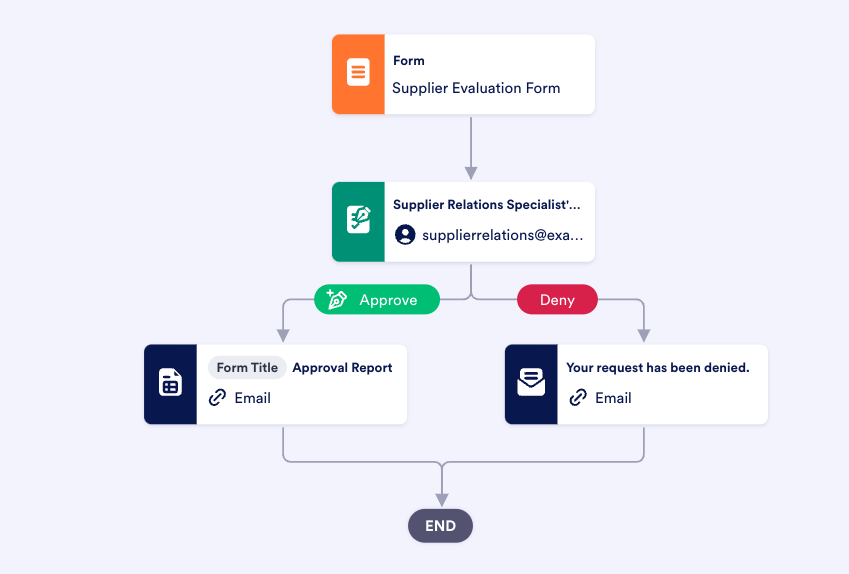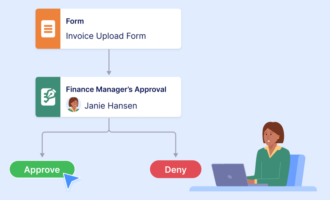A product is only ever as good as its supplier. Incompetent, uncooperative vendors can quickly ruin any business’s best laid plans. That’s why a comprehensive supplier evaluation and procurement policy is the key to creating, launching, and managing successful products.
Unless your company functions in a truly niche market with few suppliers, choosing the correct supply partner involves a great deal of due diligence. However, time is money, so businesses need to know how to quickly evaluate a supplier.
This has long been a point of research for procurement consultants. In 1995, Ray Carter identified the “Seven Cs of Supplier Evaluation” in the Journal of Purchasing and Supply Management as procurement criteria:
- Competency
- Capacity
- Commitment
- Control
- Cash
- Cost
- Consistency
Carter later added “culture,” “clean,” and “communication” to bring the list to 10.
This list quickly became an invaluable resource for businesses of all sizes and has informed many modern procurement policies. Advancements in digital workflow applications have since made it easier than ever for companies to use this criteria to quickly evaluate a supplier.
Why it’s important to evaluate suppliers
Your relationships with suppliers and vendors are important business partnerships. As with any partnership, it’s vital to properly research how your partner assists you or holds you back. This doesn’t mean that your supplier relationships must be combative, however. In fact, properly evaluating a supplier can lead to an even stronger relationship.
Supplier evaluation is key to proper supply chain management, and a strong procurement policy can save your company a headache or two — especially if you’ve already had to make last-minute vendor changes.
Quick tips
Here’s how to quickly evaluate a supplier to create lasting vendor relationships and get the most bang for your manufacturing buck.
Check for competency
One of the most common complaints about suppliers is that their competency falls short of what they initially advertised. An easy way to check for competency is to find out what past customers have to say about the prospective supplier’s service.
Though users post reviews on many online platforms, sometimes a supplier is too small to have a reliable collection of reviews. In this case, do your own research by contacting previous and current clients. Often, these conversations can reveal competency gaps that wouldn’t otherwise be apparent.
Make sure their capacity matches your needs
Suppliers are out to make money too, leading them to sometimes take on new projects without the proper capacity to support their commitments. Although this typically results in the termination of that partnership, proper research into the realistic capacity of a supplier can help you avoid costly delays.
Ensure the supplier controls its supply chain
The buck has to stop somewhere — and it’s unlikely consumers unhappy with a poorly made product or shipping delays will look past your company to assign blame. This dynamic becomes even more complicated when your supplier doesn’t fully control their supply chain. Suppliers with control, as opposed to those a third party manages, will be much easier to hold accountable for poor service.
Focus on quality of service, not price
Low price often means low quality. If a lower-quality product better suits your needs, a cheaper supplier makes sense. Match your needs to the supplier, and you’ll have a better idea of what value they bring to your business. A low-quality, inexpensive supplier that can deliver products regularly and efficiently still offers a high quality of service relative to price.
Establish performance indicators
No matter your needs, using key performance indicators (KPIs) is an excellent way to evaluate suppliers. Much as you would evaluate an employee, define the elements of your supplier’s work that are integral to your relationship early on. With this criteria, you can compare prospective suppliers in terms of how they would perform for your specific business. Common supplier KPIs include company size, capacity, certifications, management systems, and financial integrity.
Evaluate suppliers with Jotform Approvals
As a workflow application, Jotform Approvals gives businesses the ability to automate and organize approval and review tasks. Since learning how to quickly evaluate a supplier can paradoxically become a time-consuming and expensive process, providing your team with automated forms and a comprehensive platform for supplier approval is crucial.
That’s exactly the service that Jotform Approvals offers — along with hundreds of customizable forms, like a supplier evaluation form, to streamline your supplier approval process nearly overnight. The Jotform Form Builder, combined with the ability to assign forms to workers, allows you to customize supplier approval for your business. Jotform Approvals does all the heavy lifting in supplier evaluation, giving you more time to dedicate to product improvement.
Business photo created by yanalya – www.freepik.com
- Check for competency
- Make sure their capacity matches your needs
- Ensure the supplier controls its supply chain
- Focus on quality of service, not price
- Establish performance indicators
A product is only ever as good as its supplier. Incompetent, uncooperative vendors can quickly ruin any business’s best laid plans. That’s why a comprehensive supplier evaluation and procurement policy is the key to creating, launching, and managing successful products.
Unless your company functions in a truly niche market with few suppliers, choosing the correct supply partner involves a great deal of due diligence. However, time is money, so businesses need to know how to quickly evaluate a supplier.
This has long been a point of research for procurement consultants. In 1995, Ray Carter identified the “Seven Cs of Supplier Evaluation” in the Journal of Purchasing and Supply Management as procurement criteria:
- Competency
- Capacity
- Commitment
- Control
- Cash
- Cost
- Consistency
Carter later added “culture,” “clean,” and “communication” to bring the list to 10.
This list quickly became an invaluable resource for businesses of all sizes and has informed many modern procurement policies. Advancements in digital workflow applications have since made it easier than ever for companies to use this criteria to quickly evaluate a supplier.
Why it’s important to evaluate suppliers
Your relationships with suppliers and vendors are important business partnerships. As with any partnership, it’s vital to properly research how your partner assists you or holds you back. This doesn’t mean that your supplier relationships must be combative, however. In fact, properly evaluating a supplier can lead to an even stronger relationship.
Supplier evaluation is key to proper supply chain management, and a strong procurement policy can save your company a headache or two — especially if you’ve already had to make last-minute vendor changes.
Quick tips
Here’s how to quickly evaluate a supplier to create lasting vendor relationships and get the most bang for your manufacturing buck.
Check for competency
One of the most common complaints about suppliers is that their competency falls short of what they initially advertised. An easy way to check for competency is to find out what past customers have to say about the prospective supplier’s service.
Though users post reviews on many online platforms, sometimes a supplier is too small to have a reliable collection of reviews. In this case, do your own research by contacting previous and current clients. Often, these conversations can reveal competency gaps that wouldn’t otherwise be apparent.
Make sure their capacity matches your needs
Suppliers are out to make money too, leading them to sometimes take on new projects without the proper capacity to support their commitments. Although this typically results in the termination of that partnership, proper research into the realistic capacity of a supplier can help you avoid costly delays.
Ensure the supplier controls its supply chain
The buck has to stop somewhere — and it’s unlikely consumers unhappy with a poorly made product or shipping delays will look past your company to assign blame. This dynamic becomes even more complicated when your supplier doesn’t fully control their supply chain. Suppliers with control, as opposed to those a third party manages, will be much easier to hold accountable for poor service.
Focus on quality of service, not price
Low price often means low quality. If a lower-quality product better suits your needs, a cheaper supplier makes sense. Match your needs to the supplier, and you’ll have a better idea of what value they bring to your business. A low-quality, inexpensive supplier that can deliver products regularly and efficiently still offers a high quality of service relative to price.
Establish performance indicators
No matter your needs, using key performance indicators (KPIs) is an excellent way to evaluate suppliers. Much as you would evaluate an employee, define the elements of your supplier’s work that are integral to your relationship early on. With this criteria, you can compare prospective suppliers in terms of how they would perform for your specific business. Common supplier KPIs include company size, capacity, certifications, management systems, and financial integrity.
Evaluate suppliers with Jotform Approvals
As a workflow application, Jotform Approvals gives businesses the ability to automate and organize approval and review tasks. Since learning how to quickly evaluate a supplier can paradoxically become a time-consuming and expensive process, providing your team with automated forms and a comprehensive platform for supplier approval is crucial.

That’s exactly the service that Jotform Approvals offers — along with hundreds of customizable forms, like a supplier evaluation form, to streamline your supplier approval process nearly overnight. The Jotform Form Builder, combined with the ability to assign forms to workers, allows you to customize supplier approval for your business. Jotform Approvals does all the heavy lifting in supplier evaluation, giving you more time to dedicate to product improvement.
Business photo created by yanalya – www.freepik.com
- Check for competency
- Make sure their capacity matches your needs
- Ensure the supplier controls its supply chain
- Focus on quality of service, not price
- Establish performance indicators
A product is only ever as good as its supplier. Incompetent, uncooperative vendors can quickly ruin any business’s best laid plans. That’s why a comprehensive supplier evaluation and procurement policy is the key to creating, launching, and managing successful products.
Unless your company functions in a truly niche market with few suppliers, choosing the correct supply partner involves a great deal of due diligence. However, time is money, so businesses need to know how to quickly evaluate a supplier.
This has long been a point of research for procurement consultants. In 1995, Ray Carter identified the “Seven Cs of Supplier Evaluation” in the Journal of Purchasing and Supply Management as procurement criteria:
- Competency
- Capacity
- Commitment
- Control
- Cash
- Cost
- Consistency
Carter later added “culture,” “clean,” and “communication” to bring the list to 10.
This list quickly became an invaluable resource for businesses of all sizes and has informed many modern procurement policies. Advancements in digital workflow applications have since made it easier than ever for companies to use this criteria to quickly evaluate a supplier.
Why it’s important to evaluate suppliers
Your relationships with suppliers and vendors are important business partnerships. As with any partnership, it’s vital to properly research how your partner assists you or holds you back. This doesn’t mean that your supplier relationships must be combative, however. In fact, properly evaluating a supplier can lead to an even stronger relationship.
Supplier evaluation is key to proper supply chain management, and a strong procurement policy can save your company a headache or two — especially if you’ve already had to make last-minute vendor changes.
Quick tips
Here’s how to quickly evaluate a supplier to create lasting vendor relationships and get the most bang for your manufacturing buck.
Check for competency
One of the most common complaints about suppliers is that their competency falls short of what they initially advertised. An easy way to check for competency is to find out what past customers have to say about the prospective supplier’s service.
Though users post reviews on many online platforms, sometimes a supplier is too small to have a reliable collection of reviews. In this case, do your own research by contacting previous and current clients. Often, these conversations can reveal competency gaps that wouldn’t otherwise be apparent.
Make sure their capacity matches your needs
Suppliers are out to make money too, leading them to sometimes take on new projects without the proper capacity to support their commitments. Although this typically results in the termination of that partnership, proper research into the realistic capacity of a supplier can help you avoid costly delays.
Ensure the supplier controls its supply chain
The buck has to stop somewhere — and it’s unlikely consumers unhappy with a poorly made product or shipping delays will look past your company to assign blame. This dynamic becomes even more complicated when your supplier doesn’t fully control their supply chain. Suppliers with control, as opposed to those a third party manages, will be much easier to hold accountable for poor service.
Focus on quality of service, not price
Low price often means low quality. If a lower-quality product better suits your needs, a cheaper supplier makes sense. Match your needs to the supplier, and you’ll have a better idea of what value they bring to your business. A low-quality, inexpensive supplier that can deliver products regularly and efficiently still offers a high quality of service relative to price.
Establish performance indicators
No matter your needs, using key performance indicators (KPIs) is an excellent way to evaluate suppliers. Much as you would evaluate an employee, define the elements of your supplier’s work that are integral to your relationship early on. With this criteria, you can compare prospective suppliers in terms of how they would perform for your specific business. Common supplier KPIs include company size, capacity, certifications, management systems, and financial integrity.
Evaluate suppliers with Jotform Approvals
As a workflow application, Jotform Approvals gives businesses the ability to automate and organize approval and review tasks. Since learning how to quickly evaluate a supplier can paradoxically become a time-consuming and expensive process, providing your team with automated forms and a comprehensive platform for supplier approval is crucial.

That’s exactly the service that Jotform Approvals offers — along with hundreds of customizable forms, like a supplier evaluation form, to streamline your supplier approval process nearly overnight. The Jotform Form Builder, combined with the ability to assign forms to workers, allows you to customize supplier approval for your business. Jotform Approvals does all the heavy lifting in supplier evaluation, giving you more time to dedicate to product improvement.
Business photo created by yanalya – www.freepik.com
How to quickly evaluate a supplier
- Check for competency
- Make sure their capacity matches your needs
- Ensure the supplier controls its supply chain
- Focus on quality of service, not price
- Establish performance indicators
A product is only ever as good as its supplier. Incompetent, uncooperative vendors can quickly ruin any business’s best laid plans. That’s why a comprehensive supplier evaluation and procurement policy is the key to creating, launching, and managing successful products.
Unless your company functions in a truly niche market with few suppliers, choosing the correct supply partner involves a great deal of due diligence. However, time is money, so businesses need to know how to quickly evaluate a supplier.
This has long been a point of research for procurement consultants. In 1995, Ray Carter identified the “Seven Cs of Supplier Evaluation” in the Journal of Purchasing and Supply Management as procurement criteria:
- Competency
- Capacity
- Commitment
- Control
- Cash
- Cost
- Consistency
Carter later added “culture,” “clean,” and “communication” to bring the list to 10.
This list quickly became an invaluable resource for businesses of all sizes and has informed many modern procurement policies. Advancements in digital workflow applications have since made it easier than ever for companies to use this criteria to quickly evaluate a supplier.
Why it’s important to evaluate suppliers
Your relationships with suppliers and vendors are important business partnerships. As with any partnership, it’s vital to properly research how your partner assists you or holds you back. This doesn’t mean that your supplier relationships must be combative, however. In fact, properly evaluating a supplier can lead to an even stronger relationship.
Supplier evaluation is key to proper supply chain management, and a strong procurement policy can save your company a headache or two — especially if you’ve already had to make last-minute vendor changes.
Quick tips
Here’s how to quickly evaluate a supplier to create lasting vendor relationships and get the most bang for your manufacturing buck.
Check for competency
One of the most common complaints about suppliers is that their competency falls short of what they initially advertised. An easy way to check for competency is to find out what past customers have to say about the prospective supplier’s service.
Though users post reviews on many online platforms, sometimes a supplier is too small to have a reliable collection of reviews. In this case, do your own research by contacting previous and current clients. Often, these conversations can reveal competency gaps that wouldn’t otherwise be apparent.
Make sure their capacity matches your needs
Suppliers are out to make money too, leading them to sometimes take on new projects without the proper capacity to support their commitments. Although this typically results in the termination of that partnership, proper research into the realistic capacity of a supplier can help you avoid costly delays.
Ensure the supplier controls its supply chain
The buck has to stop somewhere — and it’s unlikely consumers unhappy with a poorly made product or shipping delays will look past your company to assign blame. This dynamic becomes even more complicated when your supplier doesn’t fully control their supply chain. Suppliers with control, as opposed to those a third party manages, will be much easier to hold accountable for poor service.
Focus on quality of service, not price
Low price often means low quality. If a lower-quality product better suits your needs, a cheaper supplier makes sense. Match your needs to the supplier, and you’ll have a better idea of what value they bring to your business. A low-quality, inexpensive supplier that can deliver products regularly and efficiently still offers a high quality of service relative to price.
Establish performance indicators
No matter your needs, using key performance indicators (KPIs) is an excellent way to evaluate suppliers. Much as you would evaluate an employee, define the elements of your supplier’s work that are integral to your relationship early on. With this criteria, you can compare prospective suppliers in terms of how they would perform for your specific business. Common supplier KPIs include company size, capacity, certifications, management systems, and financial integrity.
Evaluate suppliers with Jotform Approvals
As a workflow application, Jotform Approvals gives businesses the ability to automate and organize approval and review tasks. Since learning how to quickly evaluate a supplier can paradoxically become a time-consuming and expensive process, providing your team with automated forms and a comprehensive platform for supplier approval is crucial.

That’s exactly the service that Jotform Approvals offers — along with hundreds of customizable forms, like a supplier evaluation form, to streamline your supplier approval process nearly overnight. The Jotform Form Builder, combined with the ability to assign forms to workers, allows you to customize supplier approval for your business. Jotform Approvals does all the heavy lifting in supplier evaluation, giving you more time to dedicate to product improvement.



























Send Comment: